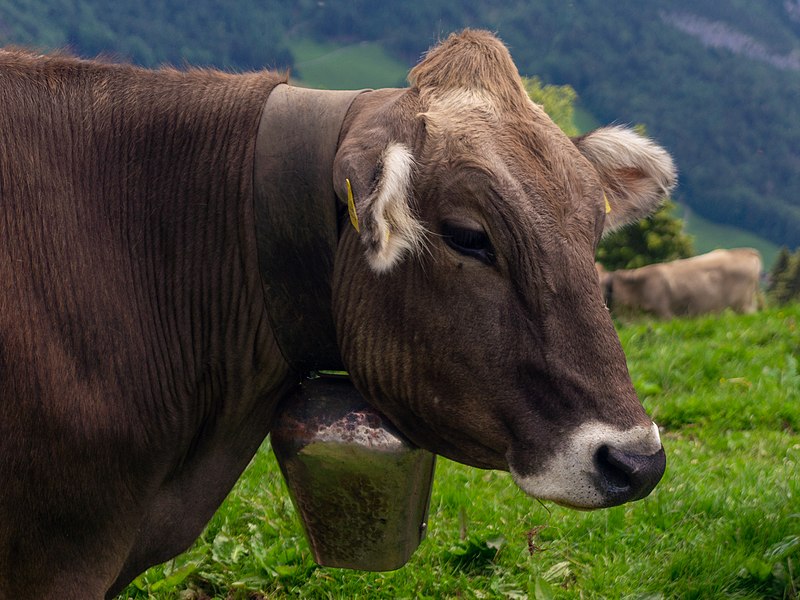The Hole in a Swiss Citizenship Application

Immigration can be a dicey subject, but let’s all agree on the following: if you come to a new country with permission from that country, live there for a while, and are a peaceful and productive member of your new home, you probably should have a path toward citizenship available to you. We can make certain exceptions, of course — we may want to deny citizenship to those who commit violent crimes, fail the citizenship test, refuse to accept the idea that cows should wear bells, or fail to pay your taxes.
Nothing about that should be controversial, right?
Wait, you don’t think a cow’s attire should matter?
You’re probably not alone — but for one would-be Swiss citizen, that mattered a lot.
Gipf-Oberfrick is a small village in the northern part of Switzerland (here’s a map), just off the German border and not too far from France, either. It’s home to about 3,500 people, including — as of the spring of 2017, a 40-something woman named Nancy Holten. Holten was born in the Netherlands, but her family moved to Switzerland when she was just 8 years old, and she remained there since, learning Swiss-German and raising her family there. She was active in her local community — per Yahoo! News, she was “a member of the parents’ committee of [her daughters’] school,” for example. And she wanted to become a Swiss citizen.
Under Swiss law, that shouldn’t have been too difficult. She easily met the residency requirement — as least 12 years in Switzerland, including three of the last five years — and the language requirement. She also had to show that she was law-abiding and not a threat to the security of her adopted nation, and neither of those factors was up for debate. But when it came to the last two prongs of the test, Holten had a problem. Per Yahoo! News, she had to demonstrate “integration into the Swiss way of life” and “familiarity with Swiss habits, customs and traditions.” And unfortunately for Holton, that proved difficult. In Switzerland, the decision to grant someone citizenship is made at the canton level, not the national level. (Cantons are, for our intents and purposes, the equivalent of states in the United States.) The sentiment of your neighbors and others in your town can weigh heavily on whether you receive citizenship. And a lot of people in Gipf-Oberfrick didn’t like Holden.
Why? Because she spoke for the cows. Holten was a vegan who had no problem sharing her concerns about how animals were treated. And specifically, as the BBC reported, Holden had “campaigned for a long time against traditional Swiss cowbells [like the one seen above], which animals wear to scare away predators and help farmers locate their livestock.” Holden argued that the heavy bells negatively impacted the health of the animals, which may very well be a valid objection. But many of her neighbors didn’t appreciate that line of argument — cows with bells are a significant part of Swiss culture — and voted against granting her citizenship as a result. Or, at least, that was the excuse. Per the BBC, “Tanja Suter, president of the local branch of the Swiss People’s Party, explained the rejection, saying that Nancy has a ‘big mouth’ and [people are] annoyed by her campaigns.” So the people of Gipf-Oberfrick voted to reject her citizenship application. Twice. In 2015, per the Independent, 206 people in the village voted on her candidacy for citizenship, with 144 turning her down. And in late 2016, 260 people showed up, with 200 rejecting her bid. Her neighbors simply didn’t like her enough to make her fully Swiss.
The second time, though, Holden didn’t take no for an answer. She appealed the local decision to the canton government which decided, understandably, that objecting to cowbells was not a valid reason to reject her application. Per a follow-up BBC report, the canton “overruled the commune and granted her citizenship.”
Bonus fact: Switzerland has compulsory military service — in general, all men ages 18 to 30 must serve. However, there are two exceptions. First, if you are deemed fit to serve but object to such things, you can apply to join the civil service instead, but you the amount of time you have to serve is 50% longer than the required military service. Second, if you’re for some reason designated as unfit to serve, you don’t get a free pass; you have to pay a 3% income tax until you are age 37.
From the Archives: The History of Fondue and the Cheese Cartel that Popularized It: A story of Swiss cheese.
